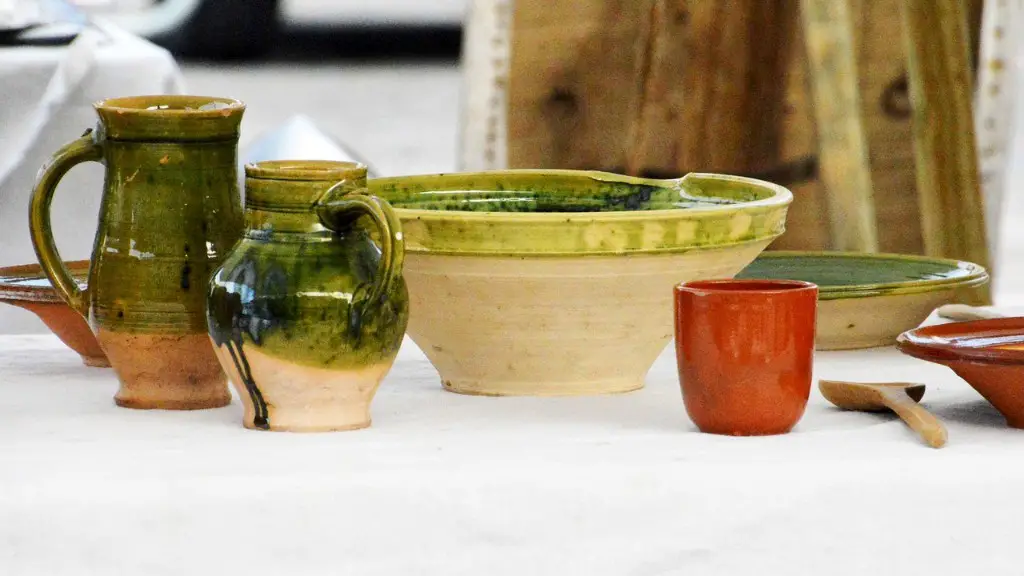Women’s Role in Ancient Rome
Ancient Rome was a period of great progress, but it was still a time of extreme male domination and patriarchy. Women had very little legal rights, and their primary role was to be the wife of a man, and the mother of his children. Wives in Ancient Rome had certain obligations and duties in the home and the family and most of these obligations revolved around the household.
The primary responsibility for women in Ancient Rome was the running and overseeing of the household. This involved anything from shopping for food and items for the home to sewing clothes, managing servants and even, occasionally, managing finances. As well as running the house itself. Women were also required to manage the slaves of Roman households, and use them to free the husband and family of any tedious, manual labor. In Ancient Rome, the husband was in charge, and the wife was expected to act as his helpmate.
Husbands in Ancient Rome were typically powerful, influential people in the community. They expected their wives to stand by them and give them support, both publicly and privately. However, while they were expected to be present in social occasions and be respectful, they didn’t have to be that involved in the conversations of their husband and his social circle.
Wives in Ancient Rome were usually in charge of the education and upbringing of their children, and the running of the household. It was the woman’s job to ensure that her children learnt disciplines such as literature, Cicero and the Liberal Arts. She was also responsible for teaching them virtues and morals, whilst keeping the home clean, tidy and well-stocked with food and other basic necessities.
The role of wives in Ancient Rome was, perhaps, best summed up by the famous Roman wife and mother, Livia, who is said to have declared: “No one has ever lost honor by all but doing his duty in his own house, and no one ever gained honor by the same.” In Romans’ eyes, a wife’s first priority was to make sure that the household ran smoothly and efficiently.
Women’s Social Status
In Ancient Roman society, women had a much lower social status than men. Women were not able to take part in politics, and they did not have the right to vote or own land. Even the most educated women were not able to practice law, medicine or the arts. Discussions about women in literature, art and even religion often portrayed them as inferior to men. Additionally, women were not able to keep wealth or possessions that they inherited from their fathers or husbands, as the law decreed that it belonged to the husband.
It was extremely rare during this period for women to be involved in business transactions either professionally or as a hobby. Nor could women be members of any guilds, or business associations. It was very unusual for a woman to be seen in public without the accompaniment of a man, and those that did were mostly of the lowest social class, or servants.
In Ancient Rome, the husband owned everything in the household, including his wife. This meant that in case of divorce, the husband could keep all of the marital assets, while the wife was left with whatever meagre possessions she was able to carry away.
Despite the fact that women had low status and few legal rights during this time, some clever wives and mothers managed to defy gender roles and make huge contributions to Roman society. A famous example of this is Livia, who was a powerful and influential woman, as well as a beloved mother and wife, despite the fact that she was in a very subordinate position.
Women’s Rights
It is important to note that whilst the role of women in Ancient Rome was largely restricted to the household, they were, in some cases, able to find a little freedom. Roman law allowed some rights to women, such as the right to keep their own property and the right to ask for a divorce. Additionally, women were able to inherit property and make their own wills.
In spite of having very few legal rights, some wealthy and socially prominent women managed to use their influence to help their families and sometimes even the wider community. A famous example of this is the wife of Julius Caesar, Cornelia, who is said to have helped in promoting the Roman Republic and encouraging young people to take an interest in politics.
Religion also offered a bit of freedom for women in Ancient Rome. Women were able to devote themselves to the worship of Goddesses such as Venus and Juno, and even established their own religious societies which often ran independently of the Roman patriarchal system.
Despite the patriarchal nature of Ancient Rome, some women were able to break free of the traditional role and make their mark in history. Though the rights of women were largely restricted, some women were able to gain influence and power, even if it was within a limited scope.
Women’s Education
The education of women in Ancient Rome was seen as a necessary part of raising a good Roman citizen. Basic literacy, numeracy and a knowledge of the family and the law was essential for wives and mothers. Women of higher social classes were often given an education in Greek and Latin literature and Philosophy, as well as other subjects such as mathematics and natural sciences.
Interestingly, the study of law was not seen as an appropriate subject for women, as it was thought to clash with their primary roles as wives and mothers. This attitude limited the educational opportunities of many women, as most of the prestigious schools and universities in the ancient world were only open to males.
For those lower on the social ladder, education was focused on practical subjects and trades, so that they would be able to provide for themselves and their family as best they could. Women of the lower classes often learnt a trade, such as midwifery, pottery, weaving and spinning.
Despite these restrictions on the education of women, some were able to become highly educated. The most famous of these is the noted Roman thinker and commentator, Sulpicia, who was the daughter of a wealthy Roman aristocrat. In addition to her studies, Sulpicia wrote successful poetry and essays on a range of topics.
Women’s Rights in the Roman Empire
The legal status of women within the Roman Empire changed over time. Towards the later years of Roman rule, women began to gain some political rights, and the number of female senators steadily increased. Women were also given more freedom in regards to marriage and divorce, with the passing of laws that granted women the right to end a marriage without the consent of their husband.
The rights enjoyed by Roman women, however, were still very limited compared to their Greek counterparts. In the Roman Republic, women were not allowed to own property or vote, and in the later Roman Empire, the rights of women were still limited. Despite some improvements over time, women in Ancient Rome had to deal with being second-class citizens.
Female Role Models
Despite the patriarchal nature of Ancient Roman society, there were some prominent women who achieved great success and respect. One of the most famous examples of a successful woman in Ancient Rome is Livia, the wife of Julius Caesar. Livia was a woman of great influence and power, who managed to exert a great deal of control over her husband and his decisions. She was also a beloved mother and wife, whose example to other Roman women provided them with an example of strength and tenacity.
Female role models such as Livia gave other women of Ancient Rome the strength to fight for their rights and to challenge the status quo. Women in Ancient Rome also looked to goddesses, such as Venus and Juno, for inspiration and strength. This allowed them to find freedom and Identity, when their rights as Roman citizens were otherwise very restricted.
Conclusion
In Ancient Rome, women had few legal rights and were largely confined to the household. However, despite their restricted roles, some women became prominent figures in their society and left their mark on history. They did this through their courage and strength in fighting for their rights, as well as their intelligence and determination in pursuing an education. The example of these brave and successful women still serve as an inspiration to us today.





